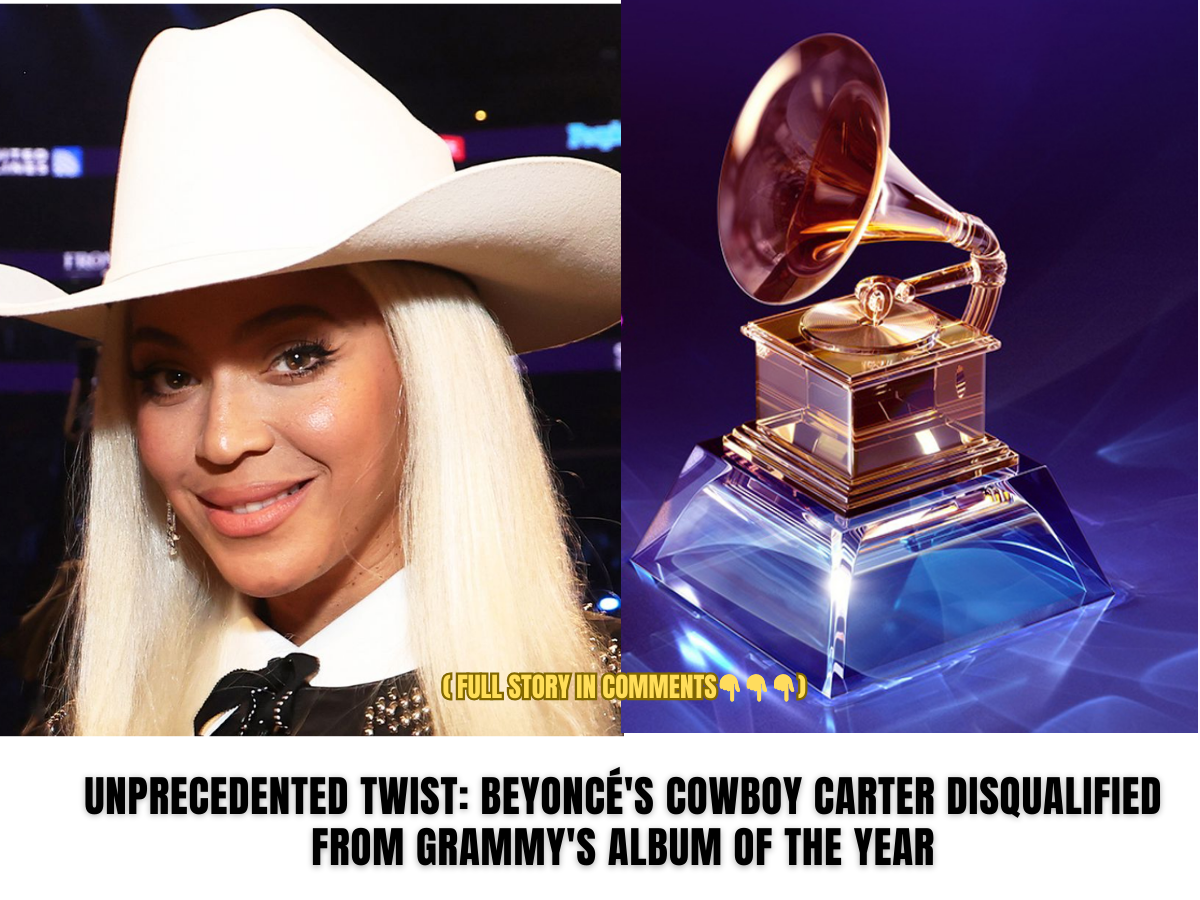Beyoncé’s latest album, Cowboy Carter, has caused quite a stir in the music scene by being disqualified from the Album of the Year category at the Grammy Awards. This unexpected decision has ignited a flurry of discussions and disappointment among both fans and music critics. The album, which sees Beyoncé exploring the country music genre, has garnered praise for its innovative sound while also facing scrutiny for its genre-blurring characteristics.
While the Grammy officials have not explicitly stated the reason for the disqualification, insiders suggest it revolves around the album’s genre-blending nature, which, while innovative, may not align with the traditional criteria for the Album of the Year category in terms of genre purity. This has prompted an outpouring of support for Beyoncé from fans and fellow artists, as well as a critical examination of the Grammy’s categorization and nomination processes.
This controversy underscores the broader issue of genre classifications in the music industry. As artists continue to blend genres, traditional categories may no longer capture the evolving musical landscape. Cowboy Carter serves not only as an album but also as a statement on the fluidity of music genres and the often overlooked influence of Black artists on country music.
Critics argue that the disqualification reflects a reluctance within the industry to embrace changes that challenge traditional boundaries. Jessica Hopper, a seasoned music journalist, suggests that Beyoncé’s disqualification might highlight a larger systemic issue within music recognition bodies struggling to keep pace with musical evolution.
Moreover, the discussion around Cowboy Carter reignites debates about the inclusivity of the Grammy Awards. In past years, the Grammys have faced criticism for their lack of diversity and failure to recognize musical innovations by artists of color. Beyoncé’s Grammy snub adds to this ongoing debate, questioning the Grammys’ relevance and responsiveness to musical innovation and cultural shifts.
In response to the disqualification, calls have emerged from various music industry stakeholders for the Recording Academy to reconsider its nomination criteria and reflect more inclusively the current musical landscape. Suggestions include introducing new categories or redefining existing ones to accommodate the genre-blending prevalent in contemporary music.
Meanwhile, Beyoncé has maintained a relatively low profile on the issue, allowing her work to speak for itself. At a recent concert, she expressed gratitude for her fans’ support and reiterated her commitment to exploring her musical heritage and pushing genre boundaries. Her husband, Jay-Z, also weighed in, emphasizing the need for institutions like the Grammys to adapt to artistic evolution.
While the debate continues, Cowboy Carter continues to enjoy strong sales and streams, indicating that while it may not vie for a Grammy in the Album of the Year category, it has certainly captured the hearts of listeners worldwide. The album has become a symbol of artistic freedom and an ongoing conversation about the role of race and history in shaping musical genres.
In conclusion, the disqualification of Cowboy Carter from the Grammy’s Album of the Year nomination serves as both a setback and a catalyst for necessary conversations and changes within the music industry. It challenges the industry to reexamine its norms and criteria and perhaps redefine what constitutes a groundbreaking musical work in the 21st century.

